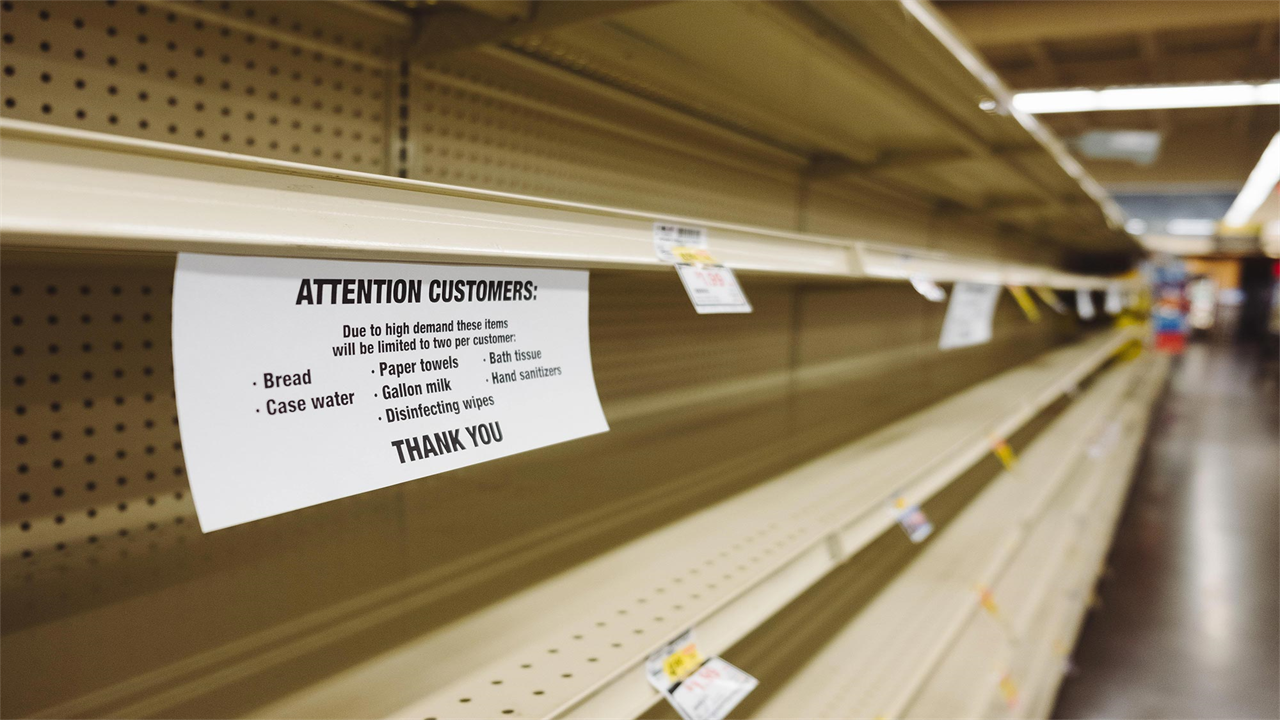Worried About Empty Store Shelves? Here Are the 5 Commodities That Will Be Hardest To Find
0 View
Share this Video
- Publish Date:
- 28 November, 2021
- Category:
- Covid
- Video License
- Standard License
- Imported From:
- Youtube
Tags

Panic shopping, empty store shelves, long lines at the gas station – given the problems in the supply chain, is that America for the foreseeable future? Yes and no, said one supply chain expert — and maybe. The global supply chain is a complicated mechanism that can be disrupted by a few isolated disruptions, but it is also predictable and resilient enough to help countries, communities and individuals mitigate the negative impacts by knowing what to look for.
Data scientist Ben Ruddell is director of the FEWSION project at NAU and a leading expert on supply chains. The $4 million FEWSION project, funded by the National Science Foundation, has built the first complete empirical description (with accompanying maps) of the US food, energy, and water supply chain (the FEW Nexus) so that every citizen and policy makers can see where their food, water, fuel and a total of 46 different goods come from. He is also a professor and director of the School of Informatics, Computing, and Cyber Systems at NAU, which is known for its distinguished scientific research programs. He also led research projects funded by NASA, USDA, USGS, the Department of Defense, private foundations, and several cities.
Semiconductors and computer chips – and yes, this includes cars.
Because of “supply elasticity”, semiconductors and goods using computer chips are in short supply. It takes several years and a lot of investment to build a semiconductor factory, so it’s almost impossible to increase supply when demand peaks, like this year. The goods most at risk are not computers and high-tech gadgets, which use the latest chips, but rather “medium-tech” goods such as cars that use older chips, whose supply is fixed.
Non-perishable supplies that people hoard.
These items, such as fuel, soap and toilet paper, are at risk because of hoarding behavior, which happens in small ways when a storm is headed for an area, and which took place across the country in the early months of the pandemic. When a photo of a bare shelf gets on social media, people tend to rush out and buy extra, causing a temporary shortage for no good reason. Hoarding thus creates a self-fulfilling prophecy. There was never a real shortage of toilet paper in 2020 – people just bought more than they needed or could even use and piled it in their closets. Resist the temptation to hoard if someone mentions a deficiency. Instead, save a little extra today to be prepared. That way you are part of the solution, not the problem.
Imports – and the longer the journey, the more likely they are at risk.
Imported goods to be shipped across an ocean or across borders can be in short supply as sudden border closures can combine with congestion at ports and border crossings to cause delays. You’ve already read about Christmas shopping delays – these delays are real, especially for goods (like washing machines and bicycles) arriving from China on container ships through the Port of Los Angeles.
Fuels used for both heating and power generation.
Fuels such as natural gas, heating oil and coal are at risk as the arrival of winter has coincided with the reduced production capacity of the COVID era in the field and unexpected shortages in renewable electricity generation, which requires combustion of fuel to power solar and wind energy. to replace. Fuel won’t run out, but this clash of events could mean fuel — and therefore heating and utility bills — will be much more expensive for a while.
Flying – as we approach the busiest travel season of the year.
Despite the bargains and deals you can get if you’re willing to look, commercial air travel in general is likely to be more expensive and unpredictable for the foreseeable future, as staff shortages lead to large numbers of unexpectedly canceled flights. Airlines are not as flexible in their operations as many other companies; being a server short at a restaurant would just make the service a little slower, but missing pilots or mechanics directly leads to cancellations, due in part to federal safety regulations. There is a higher than usual chance that your travel plans will be disrupted unexpectedly this year.










